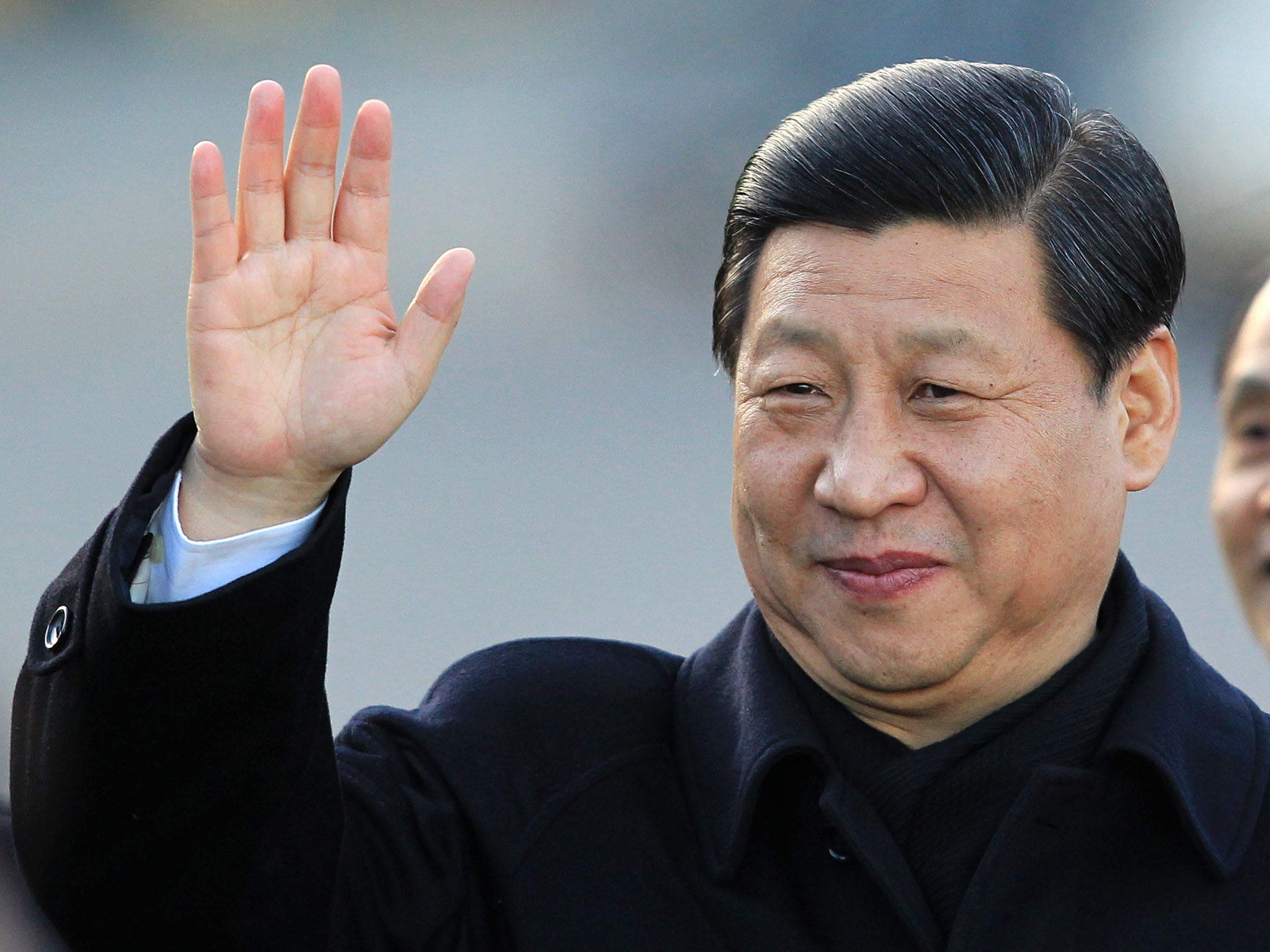'Fans' fawn over China's new leader

When Communist Party leader Xi Jinping made his first official trip outside the capital last weekend, to the prosperous southern province of Guangdong, his every movement was fawningly chronicled by a mysterious new microblog that seemed always one step - and many days — ahead of the official media.
The microblog, called the "Learning from Xi Fan Club," accurately reported Xi's travel plans, to Guangzhou, Shenzhen and other southern cities, well before the news was reported on state-run CCTV television, and days before the official news agency Xinhua, which waited to make any mention of the trip until this week, when the visit was complete.
The fan site posted rare early photographs of Xi and his family members — highly unusual in China, where the private lives of officials remain shrouded in secrecy. There are references to Xi's mottos and his favorite sports. And the site refers to the Communist Party's top leader by an affectionate nickname, "Pingping."
The founder of the site, who declined to give his true identity, claimed — in an online-only interview — that he is simply an ordinary "grass-roots person," and not a member of Xi's publicity or media team. "I'm a fan of the party secretary," he said. "I like him and support him."
But many here who study the media are unconvinced the site is the work of real "fans," saying it appears more like part of a well-oiled propaganda effort. With its professional style and use of standard journalism techniques, "It is definitely not from some ordinary grass-roots-level netizen," said Zhang Zhian, an expert with new media from Guangzhou's Sun Yat-sen University. He guessed the fan club, if not really the work of an ordinary follower, was either the work of the Party Central Committee's General Office, or reporters from Xinhua.
Whatever its origin, the microblog seems the most obvious example yet of how Xi and his handlers, just one month into the top job, are deftly trying to cultivate an image of a new, more accessible leader — a Chinese Everyman who eschews unnecessary pomp, travels in a van without a huge entourage, crosses the street only at designated intersections and enjoys common pursuits, such as playing soccer.
The online Xi fan club also shows how Xi and the other top leaders, newly elevated at the Party Congress which officially ended Nov. 14, seem more than their predecessors to understand the enormous power of the Internet, and particularly the hugely popular microblogging sites collectively known as "weibo," which in just three years has empowered ordinary Chinese with a voice and a new tool for holding corrupt local officials to account.
And rather than simply fighting weibo or trying to repress it, China's new leaders are also joining it and trying to shape it to their own ends.
"The party and the government have gained back the Internet microphone to a large degree," wrote the influential Guangdong-based newspaper Southern Weekly, known for its independent voice and liberal views. "And they've gained the dominant right of speech on breaking news and on sensitive topics."
As of the end of October, there were 60,000 government-registered "weibo" accounts, according to a report by Sina Weibo and the Public Opinion Monitoring Office of People's Daily, the Communist Party's main media mouthpiece. There were 20 official accounts of central government ministries, including the foreign, health and railways ministries, and 22 accounts held by provincial-level governments. Many local police branches also use their own weibo accounts.
Wang Yang, the reformist party secretary of Guangdong, who is being reassigned to Beijing, is known as an active blogger and weibo user. Zhang Chunxian, the party secretary in the restive Xinjiang region, is another avid weibo user, opening his personal account in 2011.
China's state-run mainstream media this week has been busily, and belatedly, hyping Xi's southern foray, comparing it to former leader Deng Xiaoping's famous 1992 trip along the same route, which served to consolidate China's commitment to economic reforms following the Tiananmen Square massacre of 1989.
But the Xi fan club account — with its micro-coverage of the trip, and the old family photos — appears to take the party's use of social media to what would be, for China, an entirely new level. Many here have likened it to the kind of image-building now becoming standard in the U.S. political campaigns.
"Admittedly, this is still the propaganda," Zhang, the new media expert, said. But he called it "a much cleverer way, humanized and more respectful of journalistic values."
The fan club microblog first appeared Nov. 21 on Sina Weibo, the most popular of the Twitter-like microblogging sites, and now has more than 25,000 followers.
In the online interview, the founder of site said other world leaders, such as President Obama, have social media fan sites, so why not Xi? He declined to say how he gained access to Xi's schedule or to the rare childhood and family photos.
As Zhang put it, "They are bridging the gap with the Western world and learning from it, becoming more like the U.S."
Subscribe to Independent Premium to bookmark this article
Want to bookmark your favourite articles and stories to read or reference later? Start your Independent Premium subscription today.

Join our commenting forum
Join thought-provoking conversations, follow other Independent readers and see their replies